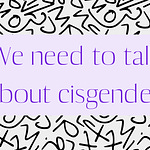Hello and apologies if you signed up to this newsletter thinking it was going to be a jolly little romp through the trials and turn-ons of being a sex positive gal about town and are now faced with this daunting headline! Did you think subscribing to a sex newsletter was going to be fun? Well, you were wrong! I’ve said it before and I’ll say it again, h…
Share this post

Is capitalism fucking with your sex life?
overthinkersguidetosex.substack.com
Is capitalism fucking with your sex life?
Aug 18, 2020
∙ Paid
The Overthinker's Guide To Sex
The Overthinker's Guide To Sex is a sex and relationships newsletter by freelance journalist Franki Cookney. This is the audio version.
The Overthinker's Guide To Sex is a sex and relationships newsletter by freelance journalist Franki Cookney. This is the audio version.Listen on
Substack App
RSS Feed
Recent Episodes










